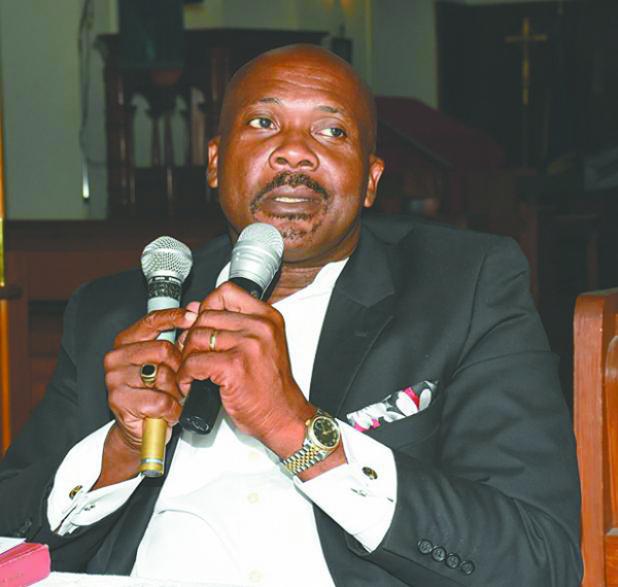
Magistrate Graveney Bannister.
Magistrate: Hold parents responsible
An officer of the court is suggesting that given the upsurge in youth violence being seen in this country in recent times, that perhaps the time is ripe for a Parental Responsibility Act to be introduced.
Magistrate Graveney Bannister made the suggestion while delivering the feature address at the annual general meeting of PAREDOS, held earlier this week at the Accra Beach Hotel.
During his address, he suggested that parents should face civil liability for “willful misconduct” by their children, which results in loss and damage to property, and he added that the destruction of the property of another should be imputed to the parent of the child.
A Parental Responsibility Act, he said, would hold parents responsible for willful acts of vandalism and destruction of such things as school property, damage to the seats of Transport Board buses and route taxis; the use of graffiti to deface signs, and other damage to property. However, he explained that before the Court finds the parent liable, it would have to consider if there was reasonable exercise of supervision of the child at the time of the behaviour which resulted in loss or damage to property, or
reasonable care or efforts to prevent or discourage the loss or damage that was done.
He stated that some of the other things that should also be taken into consideration is the age of the child; the prior conduct of the child; the physical and mental capacity of the child; and any psychological or medical disorders of the child. He said, too, that also of importance is whether the danger arising from the child’s conduct was reasonably foreseeable by the parent and whether the parent sought professional assistance for the child designed to discourage conduct of the kind that resulted in the loss or damage to property.
He made the comments while suggesting that the legislation could also deal with youth crime and disorder and give the Court power to grant orders to quell anti-social behaviour among the youth.
“These Orders may say who is the person or persons with whom the child may live, the time the child is to spend with another person or persons, maintenance of the child, the process for resolving disputes about the terms and operation of the Order, any aspect of the care, welfare, or development of the child, or any other aspect of parental responsibility like long term issues, education, religion, etc.
In making the Order, the Court would obtain information and consider the Child’s circumstances, he added.
The former police officer went further, suggesting that the Court through such legislation, could even impose prohibitions on anti-social behaviour and include requirements not to reside at any place other than a specific address; not to communicate directly or indirectly, or associate with certain persons; not to enter certain areas, places, events, or buildings; and restriction on overseas travel for holidays.
Bannister also suggested that curfews could also be imposed under a Parental Responsibility Act, and this would best be done after consultation with the Commissioner of Police, the Child Care Board, Probation Department or other agency authorised by law. He made the point while making it clear that any curfew should not conflict with the child’s ability to attend school.
(JRT)
